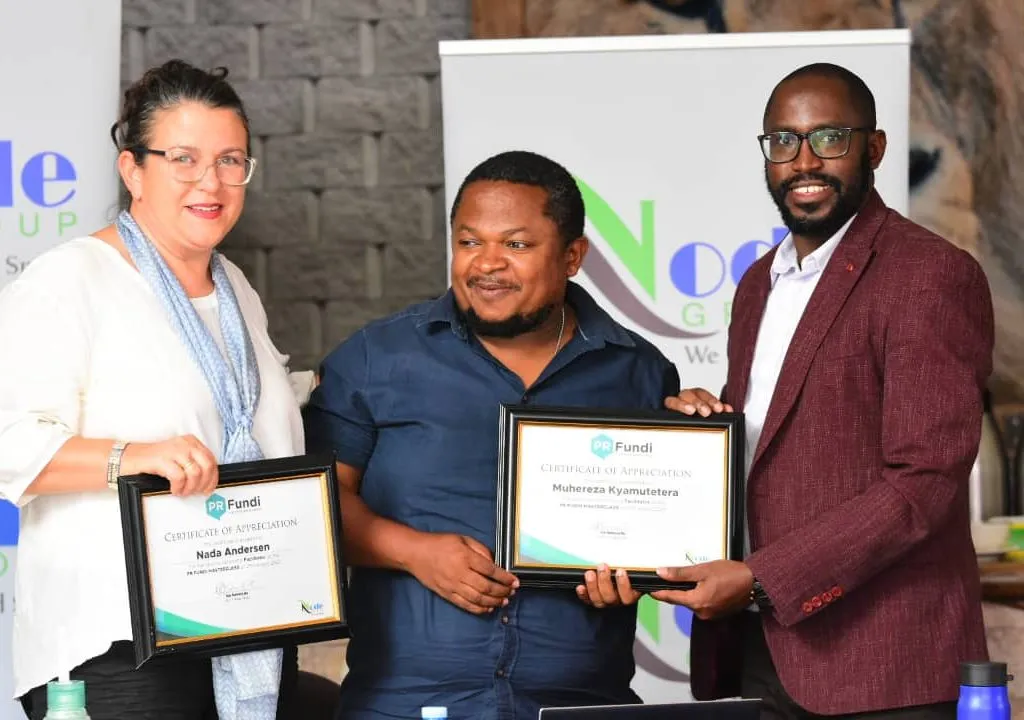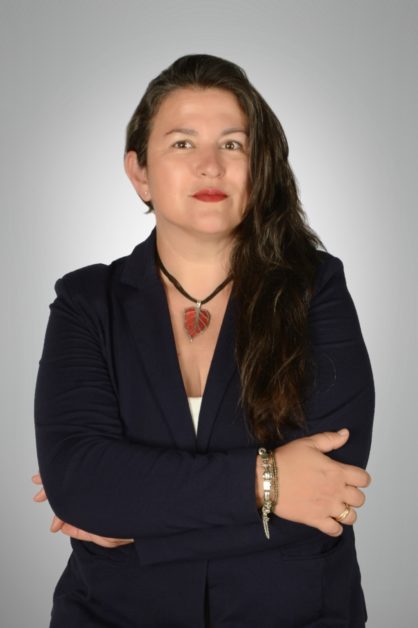Tell us about Nada Andersen. What’s your background and how did you come to join advertising, and in Uganda?
I came to Uganda as a young student of the Academy of Fine Art. My boyfriend at the time used to work here in Yugoslav Embassy and we moved to Uganda to start a business. I was looking for adventure and a different life from what I had in Serbia. This was in 1993 when former Yugoslavia was in turmoil, and any place was better than remaining there. It’s exactly thirty years this month that I made Uganda my home. I also made a choice to become a citizen of Uganda by registration.
Describe for us what the early advertising industry was like and what it is like today. What has changed and would you say it has changed for the better?
I started as a creative director with A-One, an ad agency that used to be one of the movers and shakers. Soon I set off on my own, forming Star: Leo in August 1998. We are cutting a 25-year cake this year.
Advertising was in its infancy in 1998, with just a couple of agencies handling all the clients. I remember McCann Ericsson, run by Mike Dougherty, one of the grandfathers of advertising and PR in Uganda. Then, there was Ashley Meyers and The Studio, where David Case and Nigel Sutton partnered on the Multichoice/DSTV account. The Advertising Firm TAF and Myriam Odaka, MC Africa and the late Andrew Wandera were also on top of their game.
The market was small and vibrant, Uganda was waking up and we were looking forward to new clients and opportunities. There was no scramble over clients, each agency had its corner to operate in, and we didn’t clash much on pitches. You knew whom you could work with, who was not ‘taken’ yet. Obviously, there was a lot of work given based on friendships with clients, and the agency heads who owned bars were at an added advantage.
Today, the difference is that clients do not choose on merit but look for commercial interest – whether hefty media discounts or other forms of returns on investment.
What would you say are some of your best/worst moments in the industry?
My best moment was snatching the Orange Uganda account from MAAD and Fireworks by accident. Orange came to Uganda under Leo Burnett in Nairobi, who was Orange’s global agency and was looking at some local agencies to partner with. They chose Star: Leo, and I want to believe this was because of our integrity and the crazy way we had put a team together. Overnight, we had Clay Kharat (RIP) as a creative director, Winston Agaba as a client service director, Joy Masaba (RIP) as a copywriter, and a creative director on loan from Zimbabwe, Dave Marson. In the first days, we produced some brilliant work for Orange.

That was also the worst moment for me because I had to decide between Star: Leo, with a multimillion-dollar annual turnover with the Orange account, and Sports TV, which I had set up as the first free-to-air 24/7 sports-only TV station in Africa. Sports TV lost, and here we are today, still ticking over in advertising. Sports TV was leased to Vision Group, and they did us in badly. But that’s the story for another day.
If you had a magic wand and were to change certain things about the advertising industry- what would you change? What would you banish forever?
Brilliant question! I would banish marketing managers who think they know it all. These people rain on every creative parade with the sole purpose of showing how they know better. They believe the agency should push the mouse and deliver creative work based on their creative direction. I’m tired of people who can’t let go of the little that they know and let the agency do the job it is hired for. Many a campaign was beaten down to below mediocre because the client’s guy didn’t understand the wit of the creatives. This is why we don’t see much outstanding stuff. Ugandans are creative and witty; how come this does not translate into the advertising campaigns we are exposed to? There’s always that client’s guy who says, “dumb it down”. This has to stop.
These marketing managers and heads of communication cure their stress by stressing the agency without recognising the value that a good agency can bring if everyone works in harmony.
Many clients need to understand that the agency they hire should be the extended arm of their business. We spend weeks learning the ropes: how the business operates, the inner chains of command, how the products are going to the market, what it takes to produce something and what costs it involves. We observe the people and inquire about their job satisfaction, the relationships. We identify the bullies and the allies. Immersion in the client’s process is very important. It helps the agency understand the production flow and interpersonal relationships.
The advertising streets of Kampala are full of very many dead agencies- but probably twice or thrice the number of dead ones are born annually. What or who is killing our agencies- especially the indigenous ones?
Greed is killing everything in Uganda. The first question people in the agency ask is how big the retainer is. Money is relevant, but it shouldn’t be the primary driver. People who moonlight and hop from one agency to another for a meagre increment in salary are also killing the industry. I have employed quite a number, and there is very little loyalty. Agencies invest in training only for a drifter to sail away, looking for 100,000 extra per month.
You invest in building a team of creatives who know your client’s strategy and identity inside out, only to find out they are moonlighting for an agency handling your client’s competitor. This is low by all standards. Then the newcomers operating from the briefcase always have an uncle somewhere, and the uncle has a government tender to give.

We have purposely kept away from government contracts. This is a whole different ballgame. You are not even required to produce the work; you are there to carve the animal and distribute the flesh. Why do we not see any impressive government campaigns? We have some talented creatives in Uganda, so where is their creative work? Look around, can you even remember one impressive campaign run by any ministry or agency? Maybe UTB nowadays, but still, the budgets are there so where is the exceptional work?
I recently listened to an interview of yours where you spoke out so strongly about bribes and kickbacks in the industry. “If you are asked for kickbacks, kick them in the back,” you said. How bad is this sickness?
The whole country is infected; the question is only how much. Recently we pitched for an airline business, giving a very fair retainer offer. The chosen agency was 23 years younger than Star: Leo and they won the pitch for three times the retainer we proposed. I always tell whoever cares to listen: if you must ask for a kickback or a bribe, be reasonable so it’s not obvious. But who’s listening? The going rate of kickbacks is 30% to 50% of the contract given. It is no surprise that we are surrounded by less-than-mediocre advertising.
What are other ills in your view, you think are hurting the industry?
There is a complete lack of vision for the advertising industry. We create for money and do not mentor and educate any exceptional individuals. Ad men have lost their pride, they are minimized to the level of desktop publishers, and agencies are drowning in taxes or trying to patch up after their bosses take all the client’s money, buy a house, and leave the country.
But are agencies still relevant anyway?
Agencies should be relevant, but they are not. They are often just extended money-minting shops for clients’ employees. I don’t see any head-turning advertising around. Recent advertising awards didn’t blow my mind. That’s why I opt to judge international awards – at least I can get inspired and learn from some excellent international work.
And where do you see the advertising industry in the next 5 years?
If we don’t kill it by then, the advertising industry in Uganda should consolidate, fence off its territory, set up protocols for working with clients, share information on errant clients and employees, and work in a more collaborative manner. The industry will hopefully learn to say “no” to ill-mannered clients and poor payers. We are yet to create the Advertising Certificate course, which is a norm in many markets around the world. We are yet to send Ugandan artwork and campaigns to win awards on the continent or globally. I see agencies working virtually, like Star: Leo, and I see budgets going up and corruption going down. We must never lose hope that our beautiful profession can get cleaner and better. We must also play a part to stop corruption in advertising. I hope this will happen. That’s why they call me the smuggler of optimism into Uganda.
